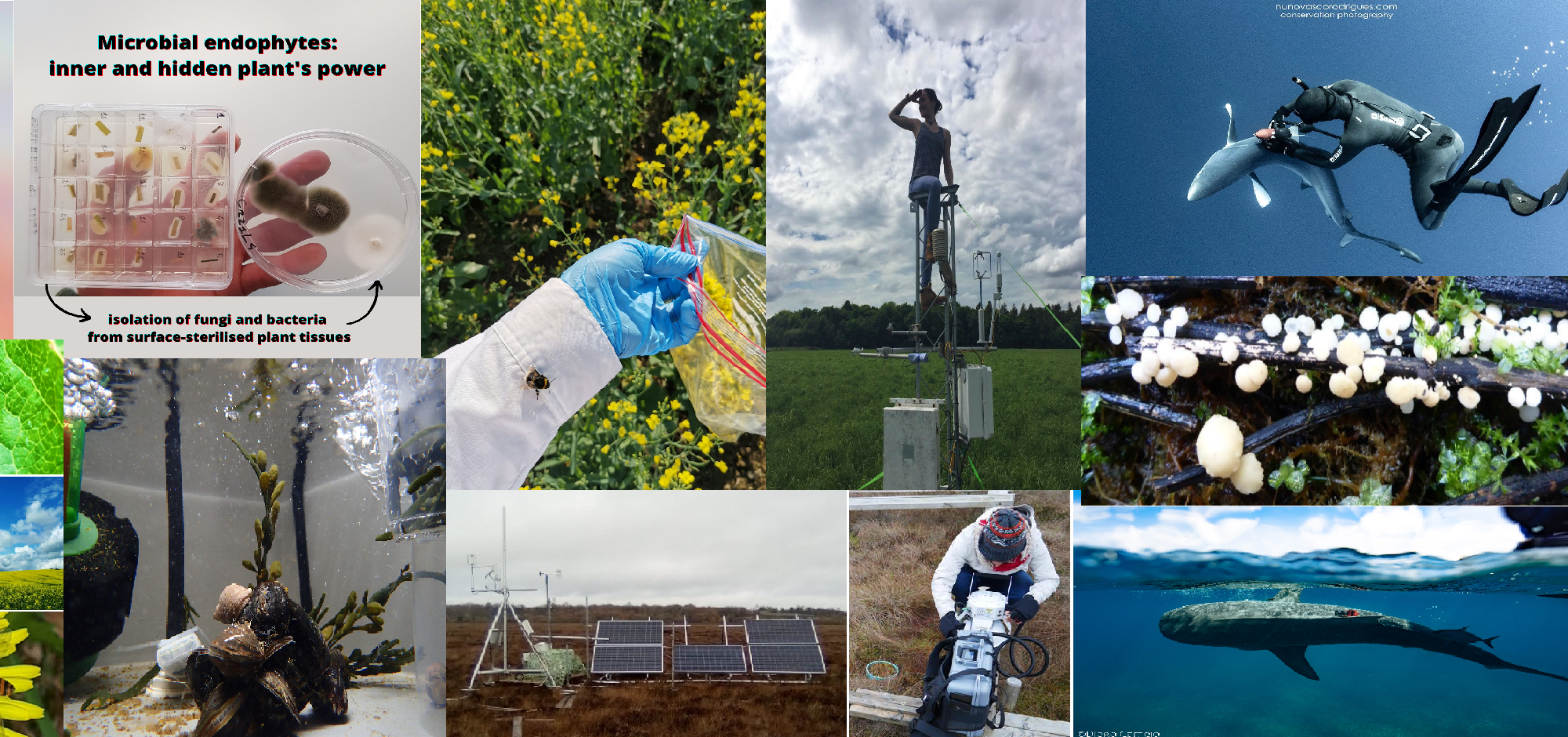Today we are celebrating our science using pictures! Here below, you can find a collection of pictures from our PhD student and research staff from Trinity College Dublin who kindly participated in this initiative.
Elena Zioga
My name is Elena Zioga. My PhD is supervised by Prof. Jane Stout (Department of Botany, Trinity College Dublin) and Prof. Blánaid White (Department of Chemical Sciences, Dublin City University) and I am part of the Plant-Animal Interactions Research group at Trinity College.
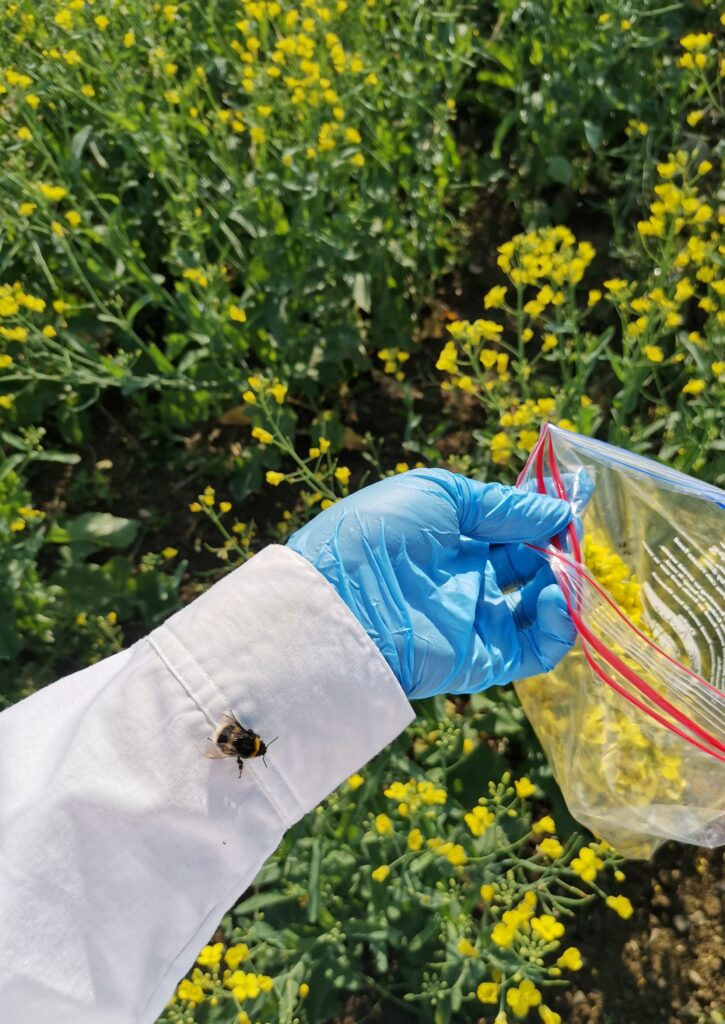
In my PhD project, I am trying to identify the level of pesticide residues in pollen and nectar, and whether their presence in those floral resources poses a risk to pollinators. This is a multidisciplinary project and part of the PROTECTS (Protecting Terrestrial Ecosystems Through Sustainable Pesticide Use) programme, funded by the Irish Department of Agriculture, Food and the Marine.
Marine Valmier
My name is Marine Valmier and my PhD is supervised by Dr Matthew Saunders from the Department of Botany in Trinity College Dublin.
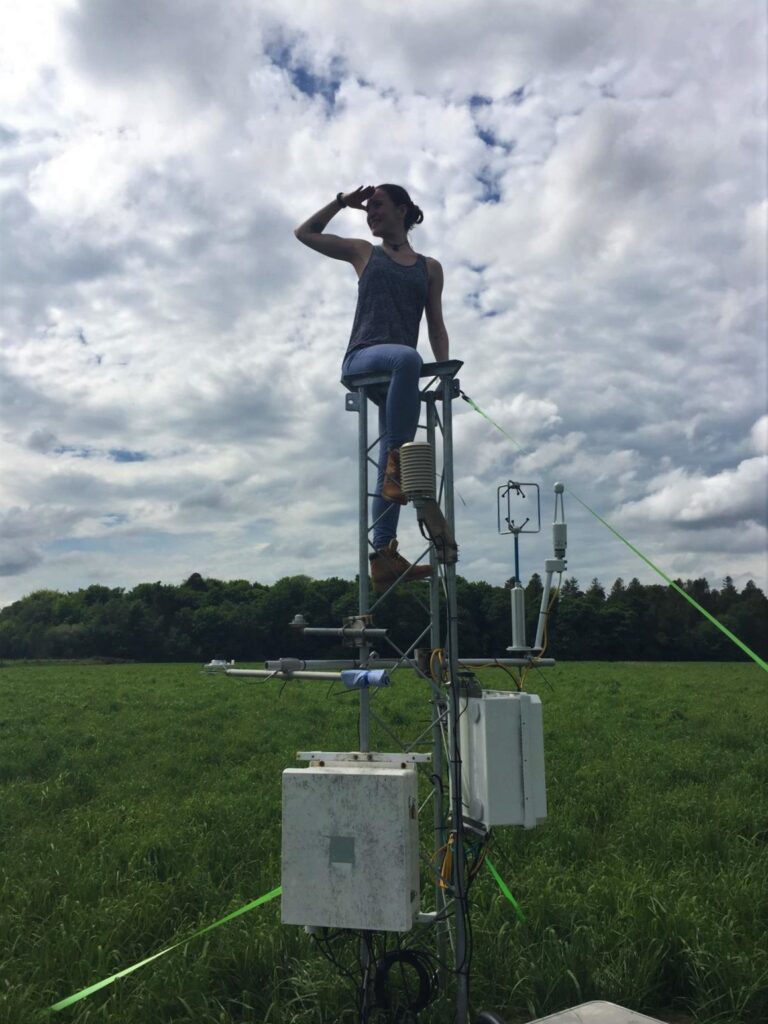
In this picture, I’m (very actively) monitoring a grassland on drained organic soil, perched on the eddy covariance tower that we installed there, allowing the determination of CO2 exchanges at the ecosystem level. A great place to do science on nice summer days! Additionally, I’m using chamber measurements to evaluate the soil-derived emission of CH4 and N2O, in order to assess the greenhouse gas (GHG) budget of the site.
Silvio Solleliet
My name is Silvio Solleliet and my PhD is supervised by Dr Nicholas Payne from the Department of Zoology in Trinity College Dublin.
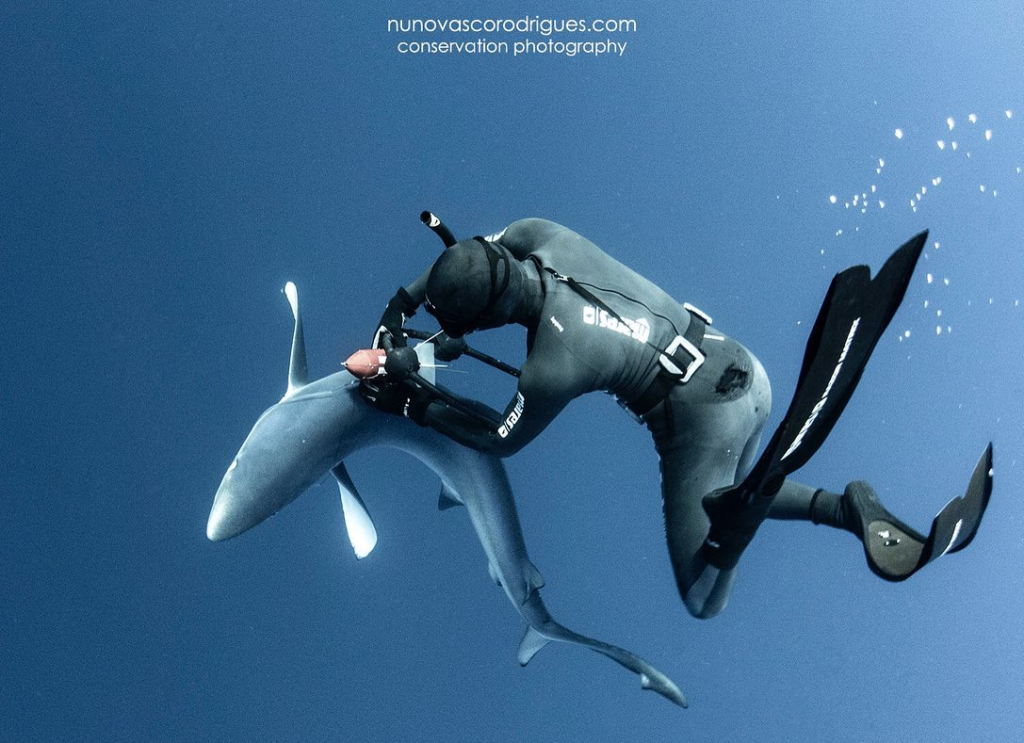
I am a French student passionate about marine megafauna and animal behaviour, I am specialising in the use of photo-identification and bio-logging technologies in population studies, movement ecology, spatial dynamics, swimming strategies and physiology of fishes, to serve marine conservation. I just started my PhD under the supervision of Dr. Nicholas Payne, I will be focusing on three the impact of catch and release on Atlantic Bluefin Tuna, the spatial dynamics and environmental preferences of tunas in the NE Atlantic and the design of new electronic tagging methods for small species. As my PhD project did not start yet the picture is from previous works, I have been working at the Institute of Marine Biology (IMAR) of the University of the Azores for the last four years. There I worked on the design and testing of new non-invasive attachment methods using harness and clamp systems and towed tags for short-term tagging of deep-diving pelagic sharks and rays. The picture below was shot by the underwater photographer Nuno Vasco Rodrigues as I was adjusting the harness on a Blue Shark and recently made the cover of Oceanografic Magazine.
Jean Williams
My name is Jean Williams and my PhD is supervised by Assistant professor Marcus Collier (Department of Botany) and Professor Anna Davies (Department of Geography) in Trinity College Dublin.

Keywords: Foraging, sustainability, food system, information and communication technologies and governance.
Brief description: This research will examine if foraging can transition towards a sustainable food system in Ireland. Foraging may contribute towards a sustainable food system by means of connecting people to their landscape, enhancing biodiversity and conservation protection thus offering a complementary method of the free, nutritious food supply. Foraging, defined as the search for wild sources of food, is a ubiquitous behaviour among humans and the oldest form of food provisioning. The contemporary landscape of foraging is increasingly mediated through the tools of information and communication technologies (ICT) such as websites and social media accounts including Facebook. This research will also explore the governance of foraging in Ireland. This thesis will, therefore, make a novel contribution in providing an evidence base of current practice and its sustainability impact and future possibilities.
Irene Bottero
My name is Irene Bottero and I am a 3rd year PhD student in the Botany Department. My PhD is supervised by Prof. Jane Stout from the Department of Botany in Trinity College Dublin and I am part of the European project called PoshBee.
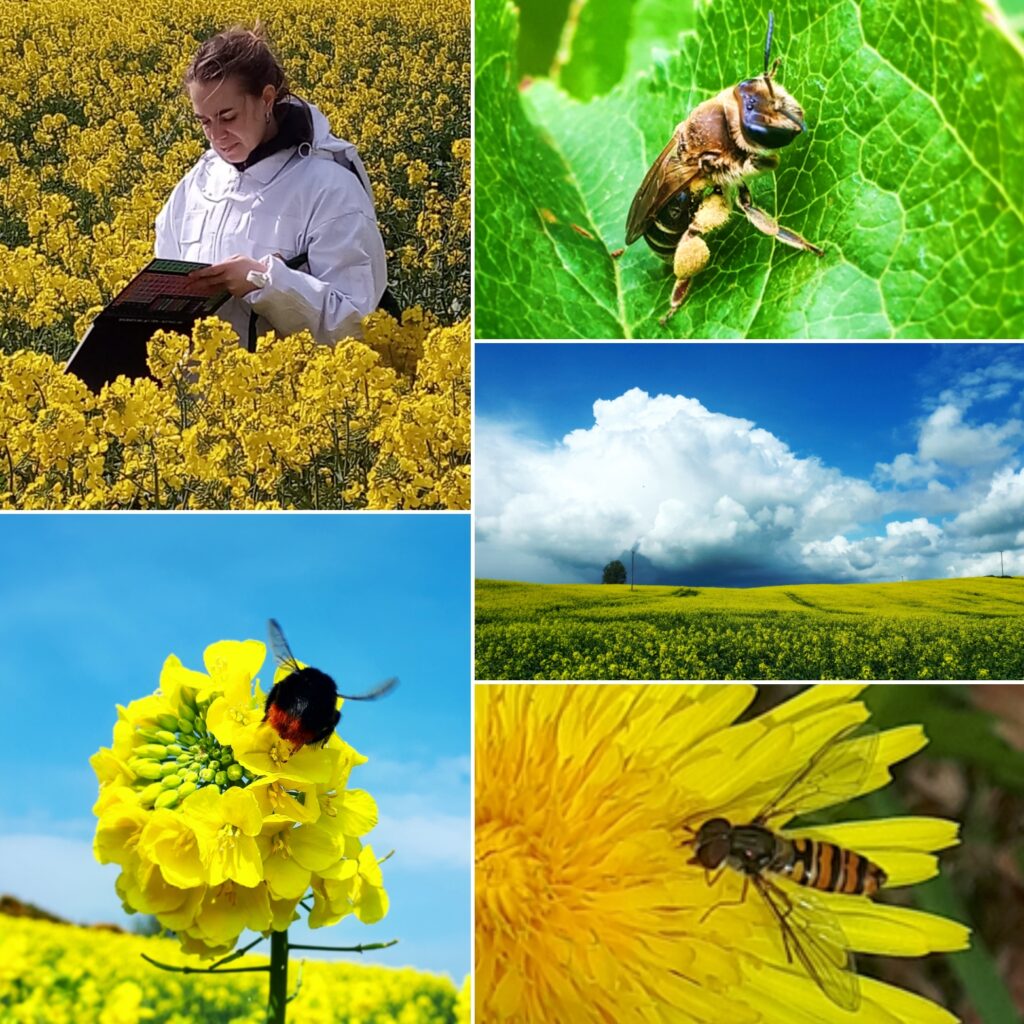
My study investigates the impact of different habitats and elements of the landscape on pollinating insects, in an agricultural context. My focus is on honey bees, bumble bees, solitary bees, hoverflies and butterflies in mass-flowering crops (oilseed rape crops and apple orchards), both in Ireland and across Europe.
Katrin Schertenleib
My name is Katrin Schertenleib and my PhD is supervised by Dr Nessa O’Connor from the Department of Zoology in Trinity College Dublin.
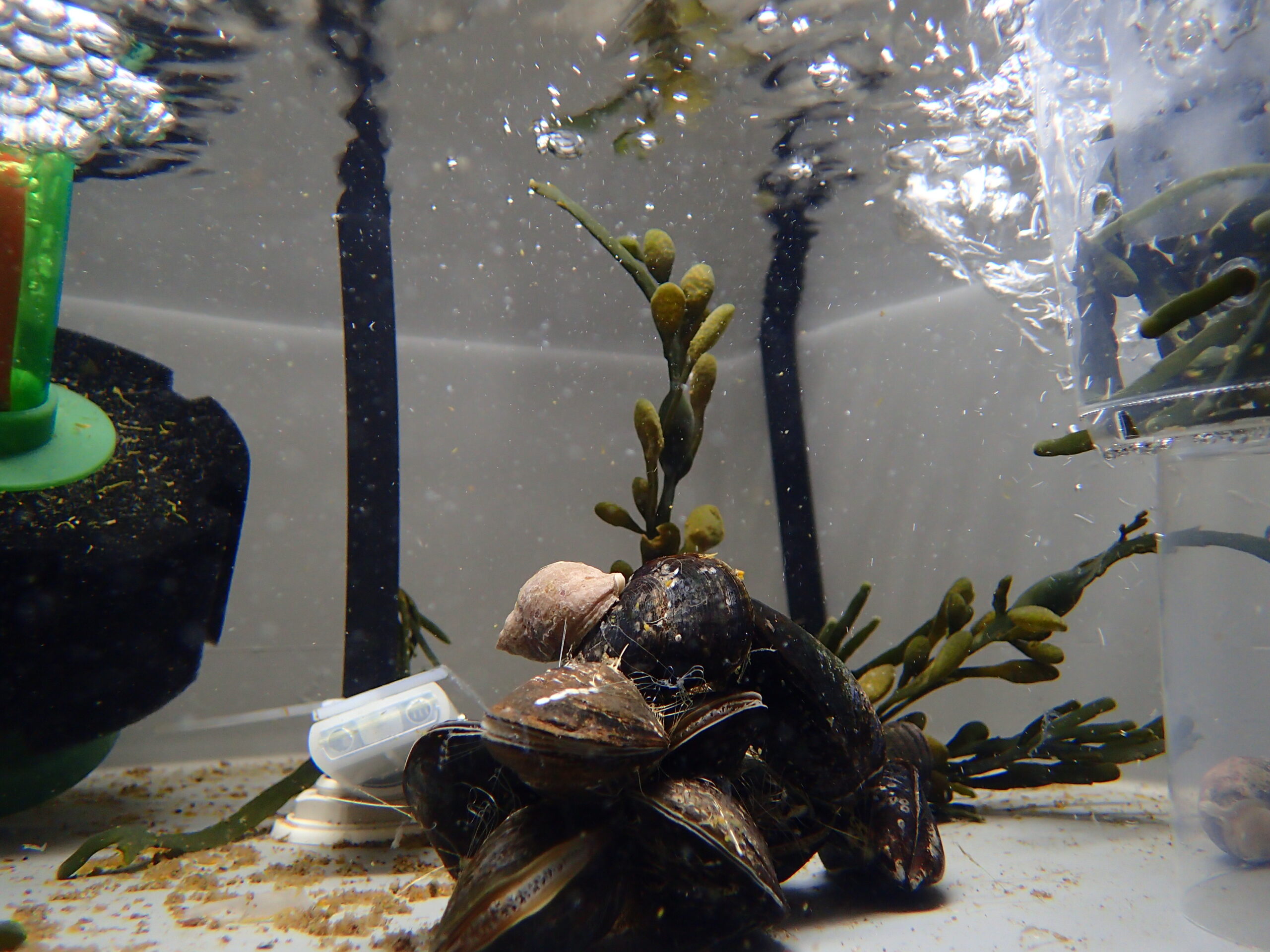
I investigate the effects of ocean acidification and warming on marine benthic assemblages, with a focus on the relationship between primary producers and calcifying species. I want to find out if or to which extend we can extrapolate the effects of single stressors to the effects of multiple combined stressors, and from single species to assemblages. To do so, I use a newly built mesocosm facility with many independent aquaria, in which I conduct experiments with fully-crossed factorial designs to disentangle species and stressor interactions. This photo shows a mesocosm that contains blue mussels (Mytilus edulis) with their predator, a dog whelk (Nucella lapilus), in the front, and the macroalgae egg wrack (Ascopyllum nodosum) with one of its grazers, the common periwinkle (Littorina littorea), in the background. Can you spot all 4 species?
Lucy Harding
My name is Lucy Harding and my PhD is supervised by Dr Nicholas Payne from the Department of Zoology in Trinity College Dublin.
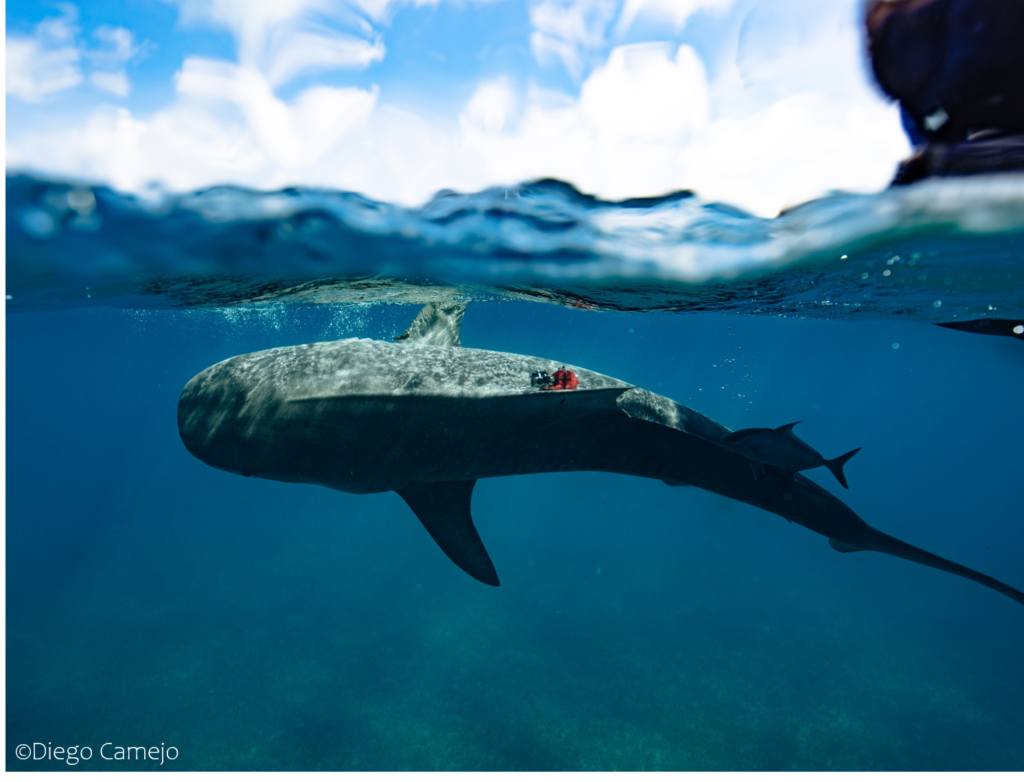
My project focuses on the dynamics of body temperature in tiger sharks, a large ectothermic shark species found in many tropical and temperate waters. Using biologging technology, I aim to estimate the rate at which these animals gain and lose heat from their environment and how this rate may influence their behaviour or vice versa. My work has implications for the conservation and management of these threatened species and contributes to the gap in existing knowledge on shark thermal physiology.
Ruchita Ingle
My name is Ruchita Ingle and I am a 3rd year PhD student in the Botany Department. My PhD is supervised by Dr Matthew Saunders from the Department of Botany in Trinity College Dublin.
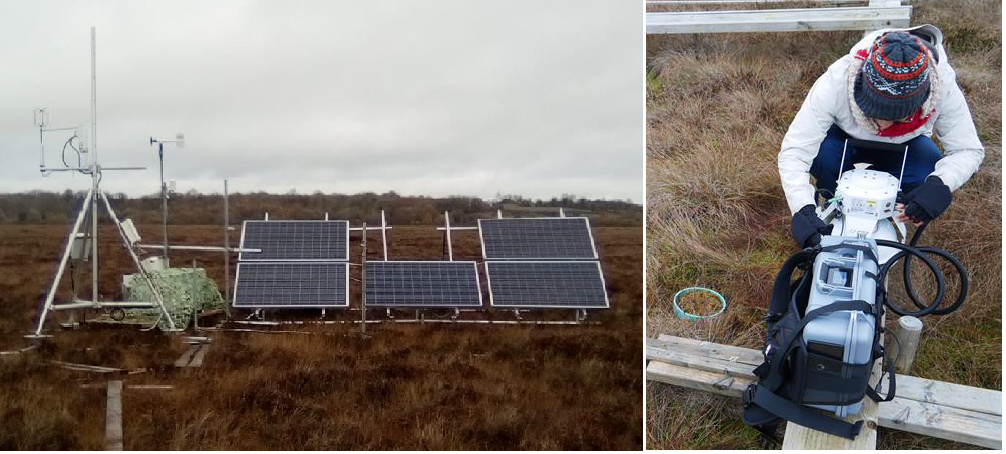
Title: Carbon and Greenhouse gas dynamics of Irish raised bog ecosystems across a drainage gradient
Peatland are one of the key elements of biodiversity covering only 3% of the earth’s land surface but holding about one third of the world’s soil organic carbon. Draining of these peatlands for various land management activities like peat extraction, afforestation and agriculture have significant implications for the carbon and greenhouse gas (GHG) dynamics of these ecosystems. Accurate quantification and long-term monitoring at various scales is essential for precise carbon budgeting and effective policy recommendations. This PhD will quantify the C and GHG budgets of raised bogs across a drainage gradient and investigate the key environmental and ecological drivers of emissions. Eddy Covariance technique and Static chambers will be used to investigate spatio-temporal extent of the fluxes and for scaling up at various levels.
Caroline Ponsonby
My name is Caroline Ponsonby and my PhD is supervised by Prof. Jane Stout (Department of Botany, Trinity College Dublin), Professor James Cook and Dr Jon Finch (Hawkesbury Institute for the Environment, Western Sydney University).
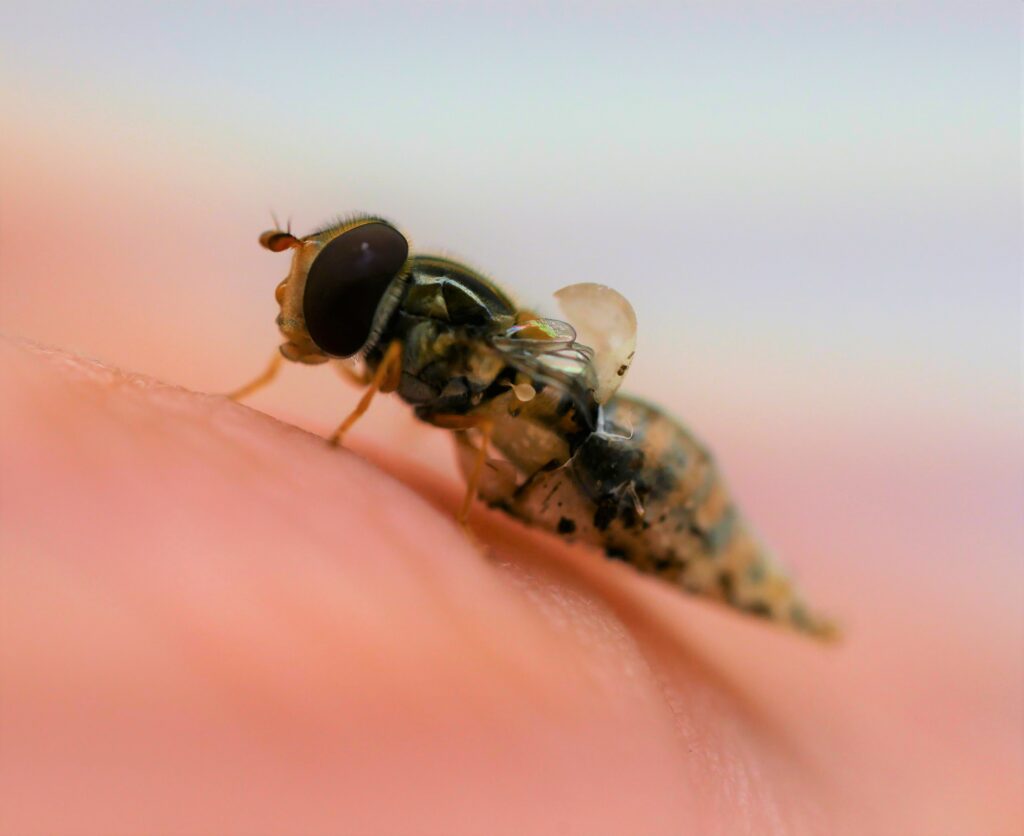
My research focuses on flies and their potential as crop pollinators. Pictured is a Marmalade hoverfly (Episyrphus balteatus) emerging from its pupa after being reared in an insectary. In open cropping systems, fly pollination efficacy is thought to be context specific and largely dependent on landscape factors. Now their capacity as prescribed pollinators in covered food crops is being explored.
Diego Dylan Bianchi
My name is Diego Bianchi and I am working within the BIOCROP Project under the supervision of Professor Trevor Hodkinson (Department of Botany, Trinity College Dublin), Professor Fiona Doohan (University College Dublin) and Dr Brian Murphy (R&d Manager, e-Seed Crop Technology Solutions Ltd.).
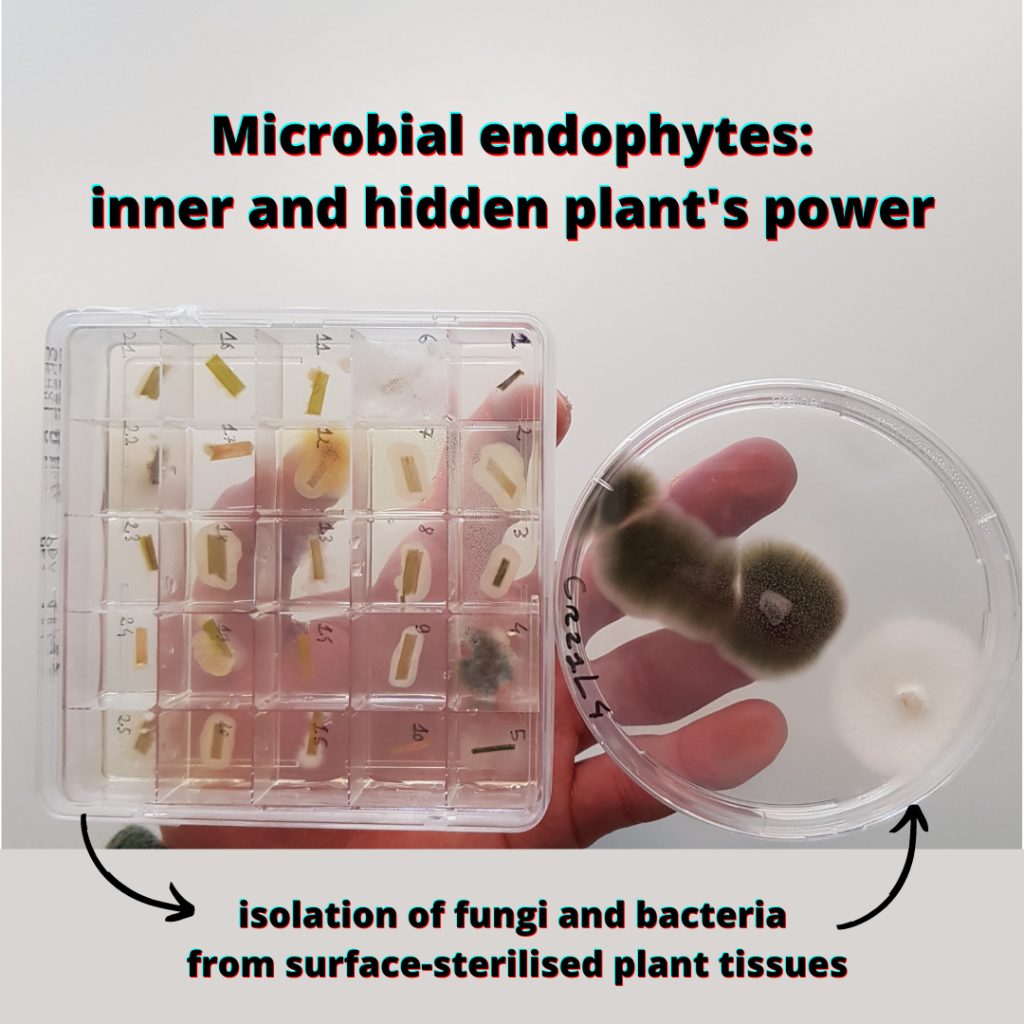
I am an agronomist and a biotechnologist who joined the Botany Department as a PhD student in January 2021. Before moving to Dublin I have dedicated much of my time in the field of sustainable agriculture. I am fascinated by the possibility to reduce the use of fossil-fuel based fertilisers and pesticides, without affecting yield and quality traits. Our task is to develop new special products (biostimulants and biopesticides) based on microbial endophytes: these microorganisms live within the tissues of all plants and are likely as important as animal and human’s microbiota. As some endophytes are beneficial for the host, we will isolate these microorganisms from wild relatives of cereals to then apply them on modern cultivars of barley in nutrient-stress conditions and the presence of typical field pathogens. What do we expect? Results comparable to fungicides treatments and traditional fertilization rates.
Erika Soldi
My name is Erika Soldi and I am a Research Assistant working under the supervision of Professor Trevor Hodkinson and Dr Brian Murphy in the Department of Botany in Trinity College Dublin. I am working on the Nexcelsior project, a collaborative project within Trinity College Dublin (TCD), the University of College Dublin (UCD) and Agri-Food and Biosciences Institute (AFBI, Northern Ireland).
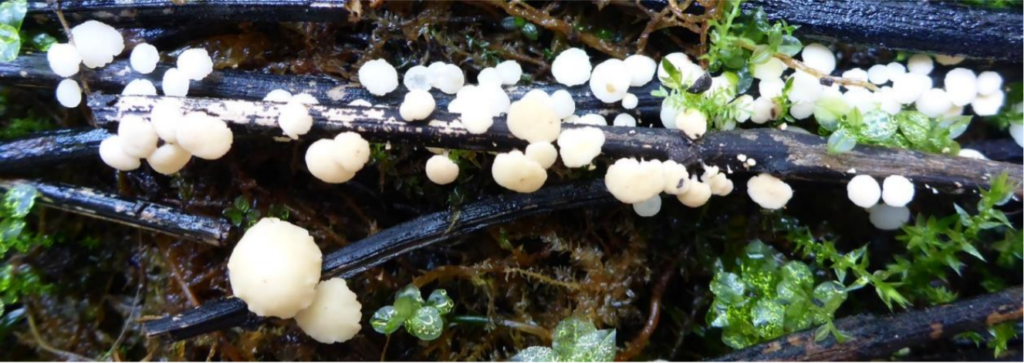
My research focused on the study of ash dieback disease (also known as Charala disease) in Ireland. Charala disease is a new devastating disease which is decimating the ash tree population in Europe in the past 20 years and it is caused by the invasive species Hymenoscyphus fraxineus (here in the picture). It was first observed in Ireland in 2012 in Co. Leitrim and since then, it is now found everywhere on the Irish Island. Because we are at a point where eradication of the pathogen is no more possible, the Nexcelsior project is looking into developing new approaches which might mitigate and reduce the spread of the pathogen and the economic and ecological lost associated with it.

